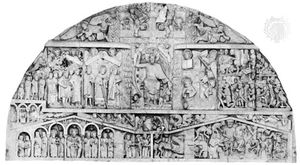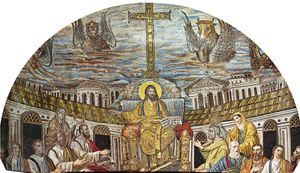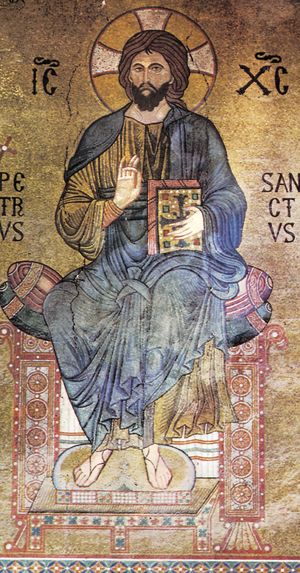Son of Man
Learn about this topic in these articles:
Christianity
- In Kingdom of God
…endowed, intermediary (the Messiah or Son of Man), whose functions would include a judgment to decide who was worthy to “inherit the Kingdom,” an expression which emphasizes that the Kingdom was thought of as a divine gift, not a human achievement.
Read More - In eschatology: The New Testament period

, the "Son of Man"). Believing in his Resurrection after the Crucifixion, however, his early followers felt that the term messiah best expressed the role and function that they attributed to their master and "Lord" (Greek kyrios). In due course the title ("Jesus, the Christ") became synonymous…
Read More - In Christianity: The relation of the early church to the career and intentions of Jesus

…own enigmatic self-designation was “Son of Man,” sometimes in allusion to his suffering, sometimes to his future role as judge. This title is derived from the version of the Book of Daniel (7:13), where “one like a son of man,” contrasted with beast figures, represents the humiliated people of…
Read More
Jesus
- In Christianity: Messianic views

…the promise of the heavenly Son of Man, as it was articulated in the apocryphal First Book of Enoch. Instead, he gave that expectation of the Son of Man an entirely new interpretation. Pious Jewish circles, such as the Enoch community and other pietist groups, expected in the coming Son…
Read More - In Jesus: The kingdom of God

…figure whom he called “the Son of Man,” who would come on clouds of glory and gather the elect. The Hebrew Bible laid the foundation for this teaching in two ways. First, several prophets expected “the day of the Lord,” when the wicked would be punished or destroyed and the…
Read More
messiah
- In messiah
…a heavenly being called the “Son of Man” (the term is derived from the Book of Daniel) would descend to save his people. The messianic ferment of this period, attested by contemporary Jewish-Hellenistic literature, is also vividly reflected in the New Testament. With the adoption of the Greek word Christ…
Read More







